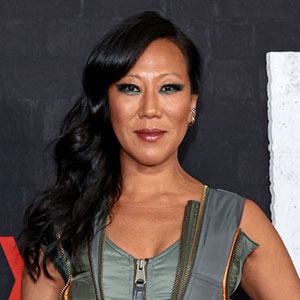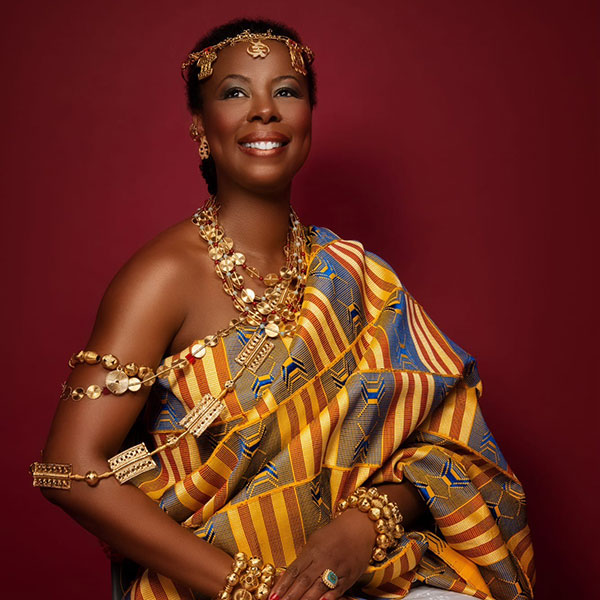
Oukassa Wetzel comes from the Akan culture, one of the oldest cultures in Africa and one of the few matrilineal societies left on the continent. Her Akan heritage inspires both her self-confidence and her jewelry brand, Aflé Bijoux.
Wetzel founded Aflé Bijoux in 2010 to share the art and symbolism of her Akan roots. In her tribute to the traditions of Côte d´Ivoire and Ghana, she has created jewelry that celebrates women and expresses their strength, independence, and self-love through its modern designs.
It’s been a bit of a balancing act, as she also has a deep love and respect for her work in the law. While upholding the law and protecting women and children has molded her, Wetzel says jewelry has always been equally important—and something that has become her primary focus and mission.
“All my life, I have been a creative person, inspired by art, beauty, and, most of all, by my African culture. My passion has always been the design and production of jewelry,” Wetzel says. “I became an expert in the law of armed conflict, but my beads have accompanied me wherever my studies and work have led me in this world.”
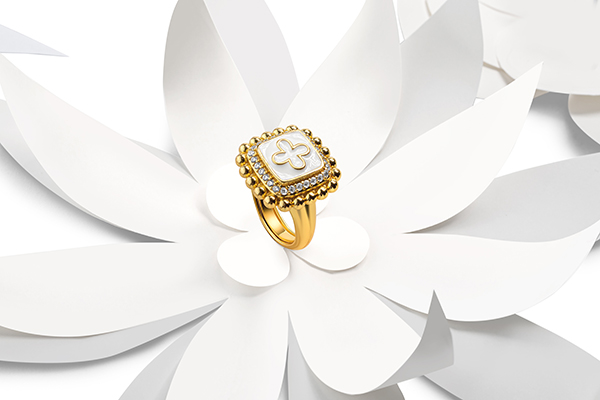
As founder and CEO, Wetzel is as dynamic as her Aflé Bijoux jewelry. She says she chose to work in the humanitarian field already at an early age. She wanted to become either a delegate of the International Committee of the Red Cross or work for the United Nations High Commissioner for Refugees to help women and children affected by war.
“When I was young, I saw reports on child soldiers and on war crimes committed during the Liberian civil war, Liberia being a neighboring country of Côte d’Ivoire, my home country. I was shocked by the images of children, almost my age, holding AK-47s and fighting,” Wetzel says.
To push her through her studies at the Geneva Academy of International Humanitarian Law and Human Rights, Wetzel says she taped a picture of two child soldiers to her wall. Within months of her graduation, she became a law clerk within the Prosecution Division of the Office of the Prosecutor of the International Criminal Court (ICC) in The Hague, Netherlands, and her first case involved child soldiers in the Democratic Republic of Congo.
“I saw how meticulous and how determined one must be in order to work on a prosecution case at the international level,” Wetzel says. “In front of the horror of the testimonies, I have learnt to keep a sense of proportion in everything I do in life. I am always grateful for what I have.”
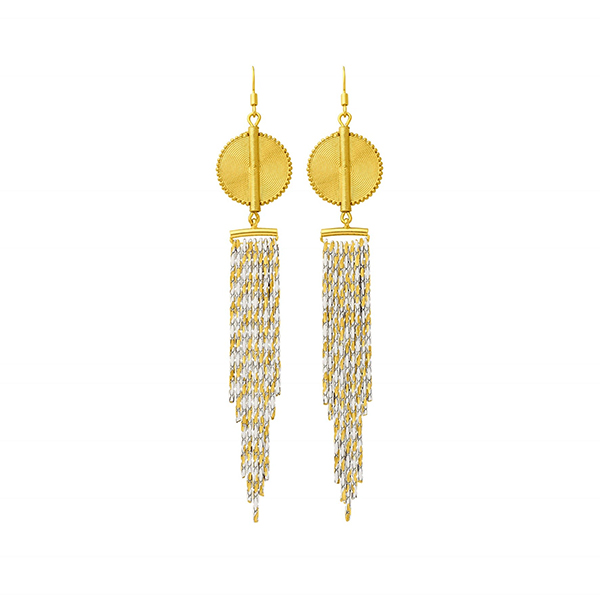
Throughout those years, Wetzel says her jewelry design work earned her as much satisfaction as her legal cases. She did an exhibition at the University of Geneva. She sold pieces to her fellow jurists at The Hague Academy of International Law and later on to colleagues at the ICC. She attended major international trade fairs such as Bijorhca Paris and JA New York as well as fashion events at Paris and New York fashion week.
“Without realizing it, I built a business that was only waiting for me to bloom,” Wetzel says. “In 2022, I have decided to lean into the dream that God has for me, which is Aflé Bijoux. I have never seen myself as a full-time businesswoman or a designer. I saw myself as a legal officer, a diplomat with a great passion for African beads and jewelry.
“I did the best studies in my field, followed high-level trainings, made a lot of sacrifices and compromises to reach the point where I am today only to realize that what drives me naturally, what brings me a sense of deep, inner satisfaction and peace is my jewelry-making,” Wetzel says.
Wetzel says she dedicates her jewelry to women not only because of her culture but also because of what she has personally seen and experienced throughout her life.
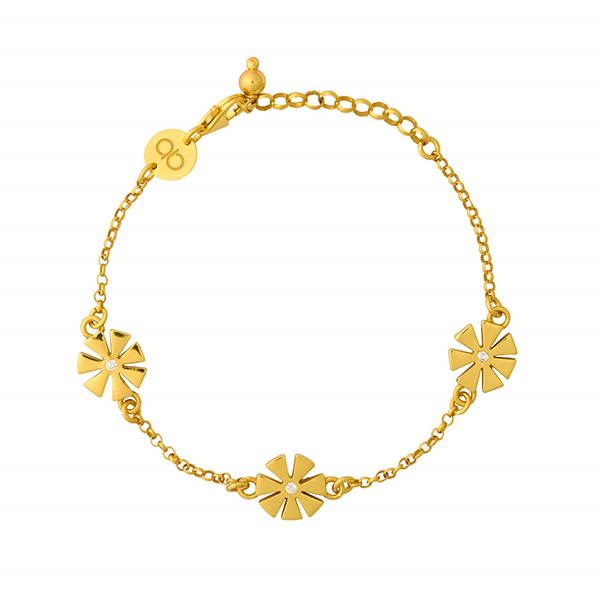
“From being a passion, my jewelry-making has become a personal journey. I have dived into my own culture, my own traditions in order to know them as much as possible before presenting them to the world,” Wetzel says. “I questioned my family, visited museums around the world, and read extensively about Akan culture. Akan culture is so rich. I am still learning.”
Through her research, Wetzel says she realized the common point between her two fields of work, namely law of armed conflicts and jewelry, were women.
“In order to build a better world and prevent hideous wars, we must empower women. Women give birth. They nurture. They protect. They are responsible for the family’s social well-being, development, stability, and peace. And this is exactly what Akan culture is about,” Wetzel says.
As Aflé Bijoux grows, so does Wetzel’s feeling that she is giving women the tools they need to become the best they can be. Her new collection, Reverence, is her first in solid gold and diamonds and aims to pay respect to her Akan ancestors for the legacy they created for her and all women.
“I dedicate Aflé Bijoux to all women around the world who do their best every day to improve our living,” Wetzel says.
Top: Oukassa Wetzel created her jewelry brand, Aflé Bijoux, as an homage to her Akan culture and for the women around the world who protect, nurture, and support their families and communities (all photos courtesy of Aflé Bijoux).
Follow me on Instagram and Twitter
- Subscribe to the JCK News Daily
- Subscribe to the JCK Special Report
- Follow JCK on Instagram: @jckmagazine
- Follow JCK on X: @jckmagazine
- Follow JCK on Facebook: @jckmagazine

